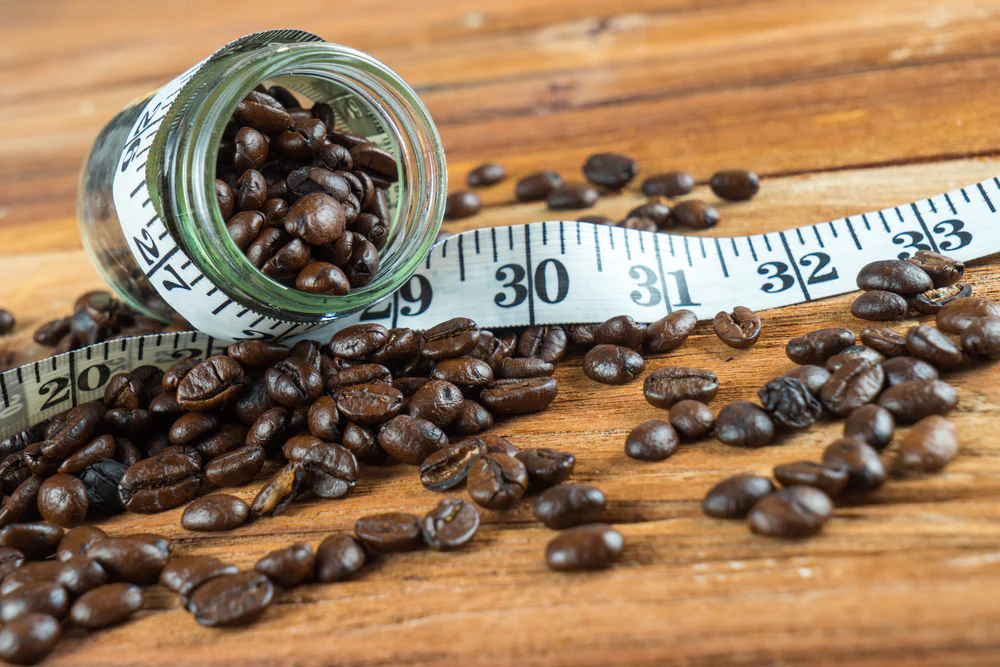Does coffee help you get more out of your exercise and health regimen? Absolutely! Dive into the delightful health benefits of downing a cup before pumping iron or pounding the pavement. Discover how consuming caffeine enhances performance, boosts metabolism, and aids in muscle recovery. But beware, there are potential pitfalls, too.
So, strap in, sip up, and explore the science of caffeine and exercise performance.

Source: health.harvard.edu
Contents
- Understanding the coffee-exercise connection
- Coffee’s role in enhancing performance
- The metabolism-boosting benefits of coffee
- Caffeine and enhanced focus during workouts
- Coffee’s impact on endurance training
- The science behind coffee and fat-burning
- Coffee and post-exercise muscle recovery
- Potential risks of pre-workout coffee
- How to optimize coffee consumption for exercise
- Final words
Understanding the coffee-exercise connection
You might be surprised to learn that many athletes rely on a cup of roasted coffee to boost their performance during workouts. Understanding the coffee-exercise connection starts with the role of caffeine supplementation in enhancing exercise performance.
Pre-workout coffee can help increase your focus, energy, and endurance, which can significantly improve athletic performance.
It’s important to remember that individual caffeine sensitivity can vary, so it’s best to experiment with dosages to see what works best for you.
Coffee’s role in enhancing performance
The caffeine ingestion from coffee before a workout is a potent ergogenic aid, enhancing your exercise performance by reducing perceived exertion. It means you’re likely to work out longer and with more intensity.
Furthermore, coffee stimulates the central nervous system, increasing alertness and focus, which is vital for optimal sports performance.
The metabolism-boosting benefits of coffee
Beyond enhancing your performance, drinking coffee before your workout offers an impressive metabolism boost.
This metabolism-boosting benefit of coffee is mainly due to its caffeine content. Caffeine stimulates your nervous system, prompting it to send signals to your fat cells, telling them to break down fat.
Not only does the positive impact of drinking coffee aid metabolism, but it also increases your energy levels. The caffeine in coffee is a stimulant, helping you maintain high energy levels throughout your workout.

Source: sakiproducts.com
Caffeine and enhanced focus during workouts
While the caffeine in your pre-workout coffee boosts energy, it also enhances your cognitive function during exercise. Consuming moderate caffeine before your workout can drastically improve your athletic performance.
Caffeine stimulates the central nervous system, enhancing mental alertness and reducing body weight. This, linked to the sports nutrition position stand, is why caffeine is a powerful ergogenic aid.
Incorporating a cup of coffee into your pre-workout routine might just give you the mental edge you need to push through those tough workouts.
Coffee’s impact on endurance training
You mightn’t realize it, but drinking coffee before exercise and training can significantly enhance your endurance.
As a pre-workout drink, coffee provides an excellent source of caffeine that boosts energy levels and improves focus. Caffeine intake increases adrenaline levels, helping you push through longer, more strenuous workouts. It also aids in releasing fatty acids, providing extra fuel for your body.
The science behind coffee and fat-burning
Often, you’re not just boosting your endurance when you enjoy a pre-workout coffee. You’re also kickstarting a process that can help burn fat more efficiently.
When you consume caffeine, it prompts your body to use fat cells for energy before using carbs. This condition is why pre-workout drinks, like brewed coffee, can enhance physical performance and accelerate fat burning.
Caffeine consumption stimulates the nervous system, leading to direct fat cell breakdown. Hence, a cup of coffee before your workout can be a mental and physical stimulant, making your exercise routine more effective.
Pre-workout caffeine also speeds up fat burning, helping you achieve weight-loss goals while improving your endurance.

Source: weaverscoffee.com
Coffee and post-exercise muscle recovery
After finishing your workout, drinking coffee can significantly aid your post-exercise muscle recovery. It’s not just about the immediate jolt of energy coffee provides. It’s more about the benefits that come hours post-exercise.
Research suggests coffee consumption can help rebuild muscle strength faster after resistance exercises. Caffeine in coffee stimulates the muscles, aiding in replenishing glycogen, a crucial energy source for muscles during recovery weight training.
When glycogen is replaced swiftly, it can reduce the time muscles take to recover and regain strength. So, consider reaching for a cup of coffee next time you’re winding down from an intense workout. It could just be the thing to boost your post-exercise muscle recovery.
Potential risks of pre-workout coffee
While coffee can aid your post-exercise recovery, knowing the potential risks of consuming it before your workout is crucial.
As part of your sports nutrition plan, a pre-workout cup of coffee can boost performance. However, consuming too much caffeine can lead to an over-caffeine overdose too, resulting in jitteriness, quickened heart rate, and even sleep disturbances.
Determining the right amount of caffeine for your body is essential, as overconsumption of ingested caffeine can also lead to an upset stomach. This problem is due to coffee’s acidic nature, which can cause discomfort during strenuous workouts.
Therefore, while coffee’s role in sports nutrition is beneficial, you must be mindful of these potential issues when considering it as a pre-workout supplement.
How to optimize coffee consumption for exercise
You must adopt a balanced caffeine regimen to ensure your coffee intake enhances your workout performance without inviting unwanted side effects. Consider it as part of your pre-workout supplements. The question of how much coffee to consume and how much caffeine to consume depends on your tolerance and the intensity of your workout.
A standard recommendation is a cup of coffee, about 95 to 200 mg of caffeine, taken 30 to 60 minutes before exercise. Be wary about an hour before, though, as consuming coffee on an empty stomach can cause jitters and hinder performance.
While coffee can boost performance, it’s also crucial to note that it’s not a substitute for proper nutrition and hydration. Keep experimenting to find your perfect balance, always keeping your health as the top priority.

Source: bonavita.ph
Final words
So, as the saying goes, ‘The proof of the pudding is in the eating.’ You’ve seen how coffee can boost your metabolism, enhance focus, improve endurance, aid in fat burning, and even speed up muscle recovery. But remember, moderation is key. Overdoing it could backfire. So, lace up, grab a cup of joe, and experience the workout transformation firsthand.
